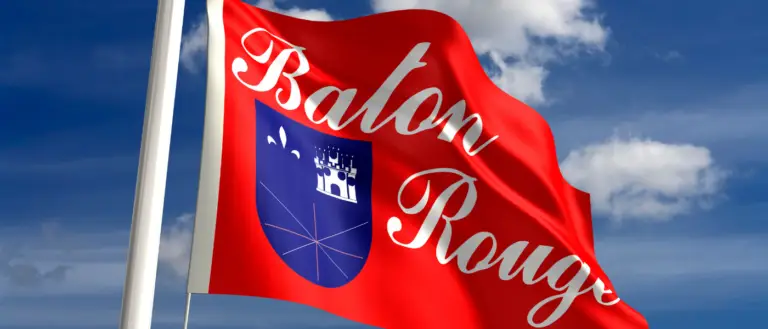Amaya Gaming Calls for DFS Industry Regulation
Following the #DKLeaks kerfuffle that has blown up over the past week, the DFS industry will be hard-pressed to avoid regulation, which has long been a touchy subject in the DFS industry for several reasons.
Even DraftKings cofounder and CEO Jason Robins seems resigned to the fact that the industry will soon be regulated, telling Bob Ley on ESPN’s Outside the Lines, “If that’s the decision the government makes, we’re open to it.” At the same time, Robins other public comments indicate he feels the company can police itself if they enhance their policies:
“We’re a young company, we’ve only been around three and a half years, and I think we’ve done a good job putting really strong policies and procedures in place. But they can definitely get better, and I know that. And there’s going to be a lot of work that we put behind this.”
So why are DFS sites so resistant to regulation?
First, the word carries the connotation that DFS is gambling, and the people that will almost certainly be in charge of regulating the DFS industry will be gaming regulators.
Second, licensing and regulation is seen as a potentially debilitating cost that DFS operators cannot afford. There would be upfront licensing fees and an increased, and potentially insurmountable tax burden, not to mention the additional operating costs to abide by the regulations put in place.
For these reasons, the DFS industry’s major players have fought against regulation, claiming they can regulate themselves. The current situation unfolding has caused many to doubt this claim, and we are starting to see more and more DFS companies either embracing regulation or open to it.
Amaya leads the charge for regulation
One company seems to be using the current crisis (that has so far been contained to DraftKings and FanDuel) and the calls for regulation to their advantage: Amaya Gaming.
Amaya Gaming, the parent company of PokerStars and DFS website StarsDraft, is a new player in the DFS industry, but they are very wizened when it comes to online gaming and handling scandals, and can appreciate the value of regulation, for the stability it brings as well as the peace of mind it instills in potential customers.
Amaya is also quite different than most of the other companies operating DFS sites, and because of these differences, Amaya is more open to and understanding of regulation for the following reasons:
- They are a gambling company
- They are a publicly owned company
- They want to receive licenses in other US iGaming markets
- They are already licensed in a number of locales across the globe
- They’ve experienced firsthand what can happen in gray markets when you’re operating on legally tenuous footing
Amaya Gaming’s decision to take the unpopular stance (among their industry brethren) isn’t overly surprising to anyone who knows the company’s history. The company has a very long history of taking lemons and making lemonade, and capitalizing on their competitors’ missteps. They are also one of the best when it comes to getting out in front of a story.
The way they handled Black Friday is the perfect example of this.
Following Black Friday, PokerStars managed to INCREASE its overall market share. By a lot. They did this by quickly reimbursing players (proving the company’s solvency) and because, unlike Absolute Poker, UB, and Full Tilt Poker, they had diversified their portfolio to the point that the US market was no longer their bread and butter. One of the biggest black eyes ever given to the online poker industry, a black eye that shuttered Absolute Poker, Ultimate Bet, and Full Tilt Poker, the fourth site emerged in an even better position.
The company later cemented their place as THE preeminent online poker company, when they purchased their one-time rival Full Tilt Poker, a site unable to pay some $300 million of obligations to their former customers. PokerStars made these players whole, once again turning a negative (for the industry) into a positive.
What Amaya said about regulation
So it was unsurprising, at least to me, when they weighed in on the data leak situation and called for regulation of the DFS industry. The first calls for regulation came from Amaya’s Head of Corporate Communications, Eric Hollreiser on Twitter:
A full statement from the company soon followed:
The recent incidents involving the practices of the leading companies in Daily Fantasy Sports demonstrate that the current self-regulatory practices have fallen short and that we need stricter state regulation consistent with existing state consumer protections for other gaming activities.
Amaya and StarsDraft.com call on state regulators to adopt tougher restrictions that safeguard players and institute controls to ensure all operators are held to a high standard of consumer protection and business integrity. We are launching an active effort to work with states to enact legislation that meets the consumer protection interests of all parties.
Amaya is one of the most licensed gaming companies in the world and has a longstanding history of working responsibly and in partnership with regulators around the globe. Since we entered the DFS category earlier this year, we have brought regulated gaming best practices to StarsDraft’s already responsible business operations, including segregating player funds from operational funds and ensuring stringent controls that meet the demands of our compliance, audit and security departments. In addition to Know Your Customer, age and location verification, these controls include strictly monitoring, recording and restricting access to sensitive information. In light of recent events, we will be taking additional steps to ensure that our sensitive data is even further restricted, including implementing a new encryption scheme for all line-up data in upcoming contests.
Consumer and player protection is and will remain of paramount importance to Amaya and StarsDraft. Beyond our current audit, compliance and security controls, our StarsDraft DFS platform strives to lead the industry using innovative features geared towards casual sports fans. We are committed to providing a fun, fair and engaging fantasy sports experience. Contrary to industry norms, StarsDraft works to ensure a proper and fair playing field for all those involved, including explicitly forbidding the use of professional scripts and bots in our contests. We provide a Bankroll Builder program, which allows users to learn more about daily fantasy sports in a risk-free environment, and offer a suite of anonymous head-to-head competitions, which ensure that users are playing against other sports fans in randomized matchups of skill.
Here’s why PokerStars weighing in a big deal.
Online poker’s wild west days
On April 15, 2011 the online poker was shaken to its very foundation. Fortunately, players were told their money was completely safe, as both PokerStars and Full Tilt Poker segregated player funds, something both sites boasted about for a long time. A few weeks later we learned that one of these sites, PokerStars, was telling the truth.
After they were forced from the U.S. market on April 15, 2011, I received my PokerStars’ balance in a couple weeks. I received my Full Tilt Poker several months ago, some four years after the fact.
There was no reason to doubt either company, these were massive operations, with valuations likely in the billions. However, there was no way to verify what they were claiming either. The lack of regulation (regulation with real teeth anyway) meant the customer had to have faith that what these companies were saying was true.
The reason I bring this example up is at G2E DraftKings CEO Jason Robins was asked about the consumer protections in place at DraftKings and he mentioned that they segregate player funds. While I believe Robins, I also asked myself the following question: How do we know? Full Tilt Poker used to say the same thing, and at the time they were a highly respected company.
Now DraftKings is making claims regarding the data leak investigation, but without external oversight how can we take these statements at face value? Both Absolute Poker and Ultimate Bet denied any wrongdoing (after internal investigations) when the Super-User claims first surfaced.
It’s not my intention to compare DraftKings or FanDuel to Absolute Poker or Ultimate Bet, but questioning these statements about policies and consumer protections is not over the line. Very few people questioned Full Tilt Poker’s assertions about segregated funds. Even if DraftKings is the PokerStars of DFS (a company you can trust 100%) without industry-wide regulation another company may be Full Tilt, or worse Ultimate Bet.
DraftKings DFS and most of the other daily fantasy sports sites want us to trust even though we can’t verify. And this is why Amaya is smart to call for regulations, and why others in the industry would be wise to follow their lead.
Regulations work
In the current, heavily regulated U.S. online poker markets what happened at Full Tilt is no longer a cause for concern. Sites software and games are lab tested and key employees are vetted. They are also forced to segregate player funds, and routinely audited to make sure they are complying. It’s not 100% foolproof, but the consumer protections in place make the games much safer.
And we’ve seen this in action. When Ultimate Gaming folded in New Jersey every last cent on deposit was repaid within a few weeks. When Ultimate Poker folded in Nevada players were once again quickly reimbursed.
Regulations in the US have by and large removed “faith” from the business to customer equation.







